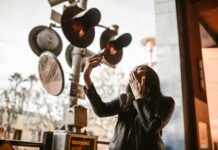 UCR students, faculty and alumni stood in a seemingly endless line at the HUB last Wednesday, anticipating the highly acclaimed Chicana author Sandra Cisneros. In celebration of the Tomás Rivera Conference and the 40th anniversary of the Chicano Student Programs, Cisneros was this year’s guest speaker, energizing the conference with her literary grace and captivating storytelling.
UCR students, faculty and alumni stood in a seemingly endless line at the HUB last Wednesday, anticipating the highly acclaimed Chicana author Sandra Cisneros. In celebration of the Tomás Rivera Conference and the 40th anniversary of the Chicano Student Programs, Cisneros was this year’s guest speaker, energizing the conference with her literary grace and captivating storytelling.
The annual Tomás Rivera Conference began 24 years ago in 1988 in honor of Tomás Rivera, the youngest and first minority chancellor in the UC system. Prior to the start of his term as UC Riverside Chancellor in 1979, Rivera rose to recognition for his Spanish novella “Y No Se lo Trago la Tierra/And the Earth Did Not Part,” which reflected his life experiences growing up in a family of migrant workers. After working in the fields as young boy, Rivera pursued his ambition to become a writer, attaining a collection of degrees through his post-secondary education. His literary work, which emphasized higher education as an avenue for economic mobility for Chicanos, would later set the tone for his role as a professor and chancellor at UC Riverside.
During his term, he worked as both a professor and administrator, connecting with members of the UC Riverside community at all levels. After his untimely death in 1984, UC Riverside named the Tomás Rivera Library after him to continue his legacy as an esteemed poet, writer, professor and administrator. Since then, the Tomás Rivera Conference has been held each year to bring prestigious policymakers and speakers on campus, such as Chicano playwright Luis Valdez and civil rights activist Dolores Huerta. The conference aims to shed light on issues of vital importance to the Latino community at the state and national levels.
This year’s guest speaker was Chicana author and poet Sandra Cisneros, who generated an undeniable buzz amongst attendees. Her first novel, “The House on Mango Street,” consists of a series of vignettes depicting the transformation of a young Latina girl in an impoverished Latino neighborhood. Exploring the trials of constant migration, poverty, and the mixture of Latino and Anglo-American influence in the Chicano experience, Cisneros infuses her stories with an honest, but humorous tone. “The House on Mango Street” has since been a ubiquitous piece of Chicano literature among all levels of academia and published into several languages. Robert J. Nava, vice president for university advancement at San Francisco State University and the conference’s host notes, “Sandra Cisneros challenges us to engineer our own destinies without the burden of acceptable patterns of cultural constraints and to give expression to the artistic passion that lies within each of us.” Her personal experiences, which inspired “The House on Mango Street” also form the basis of her body of work, including “My Wicked, Wicked Ways” and “Woman Hollering Creek and Other Stories” to name a few.
Titled “Siete Noches/Seven Nights,” Cisneros’ talk was met with a standing ovation by attendees. In describing her choice of the title, Cisneros alluded to the series of lectures by Argentinean writer Jorge Luis Borges, whose prose in short stories had inspired her to write “The House of Mango Street.” Cisneros read seven passages of her literary work, each standing alone to represent each of the nights. Oscillating from a tone of gentle grace, Cisneros’ voice changed to one with animation as she gave life to her characters aloud.
In the first night, Cisneros read an excerpt that explored the wonder of storytelling in the dead of night, when one’s intimate thoughts and feelings can be shared with ease. “For me, writing is a process of the transformation of the things I can’t talk about, the things I wish I could forget, and the memories that are very toxic in my heart,” Cisneros said. “I’m so happy that I have writing because it is necessary to transform darkness to light.” The story is about a curious young girl who asks her aunt to tell her story about having a child without a husband. Though the theme is serious in nature, Cisneros infused the aunt’s character with liveliness, drawing chuckles and smiles from the audience.
Her animated voice carried into the second night, which was about a young girl who falls in love with someone she mistakenly thinks is a Mayan king. Cisneros later delved into more sullen themes in the following nights, including the solitude she felt as she came into her own during her 20s. As her voice teetered between soft and intense, her story put attendees in the shoes of her younger self by sharing her deepest worries and budding independence.
Cisneros closed her talk by recalling her first death and rebirth as a young writer, struggling with writer’s block during her first year of graduate school in Iowa. She explained, “all of the things I wanted to say, I felt afraid to say.” Alone and away from her family in Chicago, Cisneros shared her feelings of confusion and anxiety at the time. After getting hit by a car, she walked away mostly unscathed, only with bruises on her body. Upon examining her bruises in the dorm shower, Cisneros remembered bursting into tears. “For me, someone died that night, some girl that I used to be that thought I was in control of my life,” she said. “At that moment, I realized that I was writing as if I was dangling on the stirrups of this horse that was my life; and that there was something bigger, called my ‘destino.’ And that is where my spiritual journey began.”
From her captivating and revealing stories, Sandra Cisneros was indeed a fitting speaker to celebrate the milestones of the Tomás Rivera Conference and Chicano Student Programs. Much like Tomás Rivera himself, her literary work empowers, giving readers the optimism and will to transcend life’s trials and to emerge from them with grace and humor.








